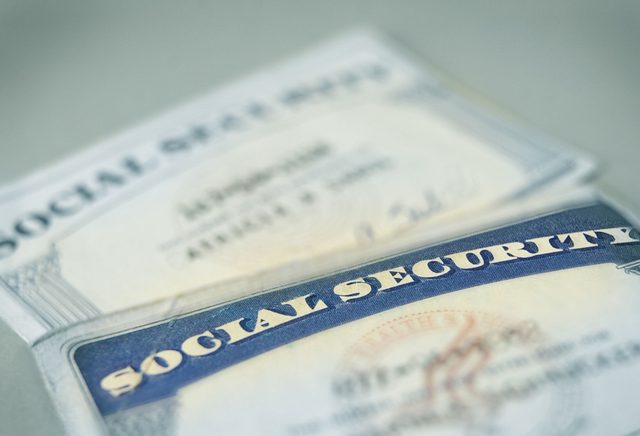
Failing to plan
Many people sail blithely towards retirement with little concern about how they’re going to manage when it arrives. Scarily, some don’t even consult a financial expert until after they hit retirement. Financial advisor Scott Hanson CFP, CFS, ChFC, co-founder and senior partner at Hanson McClain Advisers cites this as one of the commonest budgeting mistakes people make: “People just don’t do enough planning going into it. It’s amazing that people come to us after they’ve retired, to try and get their retirement set up.” Planning ahead makes the process much smoother, but if you’re approaching retirement unprepared, don’t despair. “It’s never too late,” says Hanson. “I’ve seen people in the mid-fifties with almost nothing set aside for retirement, and they get serious about it, and by time they’re 65 they’re in good shape.” With good planning, you could even retire early and live in comfort.

Procrastinating over retirement planning
Many people fully intend to plan for their retirement, but put off actually putting a plan in place. There could be many reasons for this. “A lot of people are intimidated by financial matters,” says Hanson, “And maybe they don’t understand them that well. They’re a little embarrassed to talk to an advisor, or they’re just fearful of talking to the wrong kind of advisor and maybe getting sold something.” But procrastinating over your planning is a mistake. “Putting your head in the sand, and waiting another year and ignoring it, is not going to make things any better,” warns Hanson. “So the important thing is to plan now.” Read on for retirement tips you can’t afford to miss.

Retiring early
Some people may decide to retire early, without checking they have enough assets to ensure they can live comfortably. It’s important to understand your financial situation before rushing into retirement—a few more years working and paying into a pension plan or building up your savings could reap dividends in years to come. But many people find they need to retire early unexpectedly (and if you do, try to choose one of these best states to retire in). Hanson explains why: “In the United States, roughly one out of two people retire earlier than they’d planned to, either because of a health issue or job change. They’re suddenly thrust into it and they didn’t have a lot of time to plan for it.” But if the worst happens, Hanson’s advice is to take a step back, identify the issues, and then tackle them one at a time. Make sure to avoid these 15 retirement mistakes that could ruin your retirement.

Relying on a company pension or social security
Another common budgeting mistake is to place too much faith in your company pension or social security to help you manage retirement. Even a cursory glance at your likely expenses will show that this kind of money will not be enough to support yourself with confidence, and worrying about financial matters is not only debilitating but can also lead to health problems like stress and depression—not the way you want to spend your final years! Thinking about relocating? Find out the best small towns for retirement.

Not saving enough
The Federal Reserve Report on the Economic Well-Being of U.S. Households in 2021 found that 25 percent of non-retired adults had no savings at all to prepare for retirement. And around half of the population felt they were unsure about their ability to manage their retirement finances. The median amount people have saved for retirement is $60,000, which is nowhere near enough to live on comfortably for 20 years or more. When considering how much you’ll need in savings before you can retire comfortably, you’ll need to have a clear idea about your current and future expenses. Don’t miss these 13 retirement facts you need to take seriously.

Underestimating living expenses
People tend to think that they’ll spend less when they retire, and it’s certainly true that some expenses will go down, such as commuting costs. But other expenses could well increase. For example, you may want to spend more money on leisure activities like lunching out with friends, or on traveling more. Your heating bills may go up if you’re at home all day rather than spending your waking hours in a heated office. It’s generally estimated that your retirement budget should be around 80 percent of your current spending. And don’t forget that with inflation, your retirement budget won’t stretch as far in the coming years as it does now. Want to save $5,500 this year? Just cut out these three items.

Supporting adult kids financially
“That’s a big one, frankly,” says Hanson—and he’s not wrong. In February 2022, a Savings.com study found that a staggering half of parents with an adult child provide them with at least some financial support, with 26 percent of those parents saying they’ve had to provide more support since the start of the pandemic. Additionally, 62 percent of adult children living with their parents don’t contribute at all to the household expenses and, on average, parents who financially support their adult children give them $1,000 per month for expenses like food, health insurance, rent, cell phones, tuition and even travel.
The same study found that parents who are still working and supporting their adult children spend 23 percent more on their children’s expenses ($605 per month) than they do contributing to their own retirement or savings ($490 per month). Hanson believes that people “sometimes jeopardize their retirement by giving kids money, so that tends to be a drain.” Propping your kids up financially could end up ruining your retirement. Smart people do these things when preparing for end-of-life plans.

Splashing out when you first retire
It’s tempting of course: When you suddenly have a large amount of money at your disposal, and you’ve worked hard all your life, it’s understandable you want to splash out on a world cruise or membership of that exclusive golf club. But unless you’ve planned ahead for it, this kind of spending could get you into all kinds of financial difficulty. “Oftentimes people spend too much when they first retire,” says Hanson. “When you’re retired, you have all this free time, and we sometimes see people just throw whatever budget they had out the window.” Keeping a good check on your spending will make later retirement much more secure.

Spending too much on downsizing
Downsizing might seem like good sense when you retire—the kids have flown the nest and you can reduce your bills by living in a smaller property. But things aren’t always that simple. “We’ve also seen people who think they’re downsizing,” explains Hanson. “And yes, they get a smaller house. But by the time they’ve done with everything in this nice new house they’re getting, we’ve seen people spend more on their new house than they had in the previous one.” If you’re planning to downsize and you want to complete building work to make it your perfect home, be sure to factor that into your budgeting. Next, learn how the FIRE movement method has helped so many people plan their early retirement.

Expensive relocation
Sometimes relocating makes sense in retirement. Maybe you want to be nearer your kids and grandkids, or to elderly parents. Sometimes there can be sound financial reasons too. “For some people, moving at retirement makes some sense, if their homes are worth over $1 million, and they could buy a comparable home for $300,000 a couple hours drive away,” says Hanson. “For those sorts of people, particularly if they don’t have a great number of other assets, it can be a great way for them to help fund retirement.” But he also gives a warning: “We recommend people go rent somewhere before they buy, because we’ve seen a number of people move, thinking they’re going to love it out in this retirement community or out in the woods, and they discover they don’t like it.” With the rise in house prices, you could find that your quest to move back again could leave you priced out of the market, as well as being out-of-pocket from all your relocation expenses. Always do your homework before moving to a new area, so you know what to expect.

Underestimating medical expenses
Medical expenses are likely to increase as you get older, which can really suck the budget dry. “Medical is the big issue in retirement,” Hanson explains. “Fidelity recently did a study that shows that the average couple need to allow at least $271,000 for medical expenses.” And many people don’t account for dental bills. “Let’s face it, our teeth don’t always survive as long as we do! And most medical plans don’t cover dental,” Hanson shares. “People might spend $10,000 or $20,000 on dental work that they haven’t set aside for. Dental work seems like a bigger issue for most of the people we’ve dealt with than medical.”

Avoiding long-term investment opportunities
When people retire, they commonly start avoiding long-term investments because they don’t realize they may still have 20 or 25 years investment life left. “I think people need to realize that their life expectancy is much longer on the day they retire,” Hanson shares. “If you take someone who’s retiring at age 60, there’s a good chance that they’re going to live well into their 80s. So while it’s important that some of the money is conserved to pay for some current expenditures, they also need to still look for the long-term investments that are going to do well over long periods of time.”
Sources:
- Scott Hanson CFP, CFS, ChFC, co-founder and senior partner at Hanson McClain Advisers
- The Federal Reserve Report on the Economic Well-Being of U.S. Households in 2021
- Savings.com: “Parents Spend Over $1,000/Month on Adult Kids’ Bills”